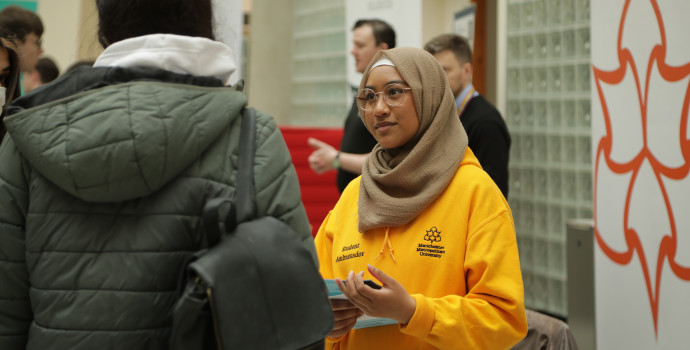
Biomedical and Physiological Sciences
Build on your knowledge of biology to bridge the gap between patient and treatment.
Introduction
Understanding normal and abnormal function brings science to a human context and is critical for the diagnosis and treatment of disease. Our courses range from the study of the body’s systems in health and disease in our human physiology course through to exploring the characteristics and diagnosis of disease in biomedical science.
With us, you could be studying the molecular mechanisms of how and why blood cell dysfunction causes disease, considering how diet impacts our health and wellbeing or identifying bio markers that allow the diagnosis of cardiovascular disease. Watch our video to hear from Human Physiology student Isaac, who had the opportunity to work with Senior Lecturers on a paid summer research project investigating mobility in young stroke survivors.
You may also be interested in our Health and Social Care degrees.
WHY MANCHESTER MET?
Alongside my degree, I had the opportunity to take part in a paid summer research project. I used cutting-edge technology, such as three-dimensional motion analysis, and gained first-hand experience working with young stroke survivors.
Alongside my degree, I had the opportunity to take part in a paid summer research project. I used cutting-edge technology, such as three-dimensional motion analysis, and gained first-hand experience working with young stroke survivors.
Our Reputation

HCPC accredited
Our Biomedical Science course is accredited by the Health & Care Professions Council.

Accreditation
Our Biomedical Science, Human Bioscience and Human Physiology courses are accredited by the Royal Society of Biology.

IBMS accredited
Our Biomedical Science course is accredited by the Institute of Biomedical Science.
NSHCS accredited
Our Healthcare Science (Physiological Sciences) course is accredited by the National School of Healthcare Science.

Rated an "outstanding" university
We have an overall gold status in the Teaching Excellence Framework (TEF), meaning we're rated as an outstanding university for student experience.

